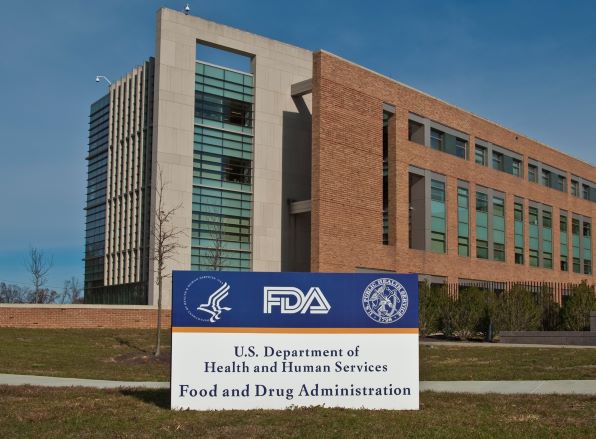Recent research finds no scientific basis for the chemical imbalance theory of depression and calls into question the basis for taking antidepressants.
During National Suicide Prevention Week, the increased risk of suicide from psychiatric drugs – especially antidepressants – should not be overlooked. Though antidepressants are prescribed to alleviate depression, the drugs carry the risks of deepening depression and suicidal thoughts and actions. The FDA website lists “suicidal thinking” as one of the “serious risks” of antidepressants.
The key rationale for prescribing antidepressants – to fix a supposed lack of serotonin or other brain chemical presumed to be the cause of depression – has been called into question by research published in July. The review of reviews, led by Joanna Moncrieff. MD, a British psychiatrist and academic at University College London, concluded that, after decades of brain research, there is still no scientific evidence to support the theory that a low level of serotonin causes depression.
“Our comprehensive review of the major strands of research on serotonin shows there is no convincing evidence that depression is associated with, or caused by, lower serotonin concentrations or activity,” the researchers wrote. “It also calls into question the basis for the use of antidepressants.”

Some 45 million Americans taking antidepressants, many on the basis of this unproven theory, are now in a position to question their physician or other prescriber about taking the drugs and, if they decide to stop taking them, to get help in slowly tapering off the drugs because of the substantial risk of withdrawal symptoms.
The FDA first took action on the increased risk of suicide from antidepressants in 2004, after drug trials found that children and adolescents taking selective serotonin reuptake inhibitor (SSRI) antidepressants were almost twice as likely to have suicidal thoughts or to attempt suicide as those receiving placebos. The FDA required a black box label to be placed on the drugs to warn of this increased risk. In 2007, the FDA expanded the warning to include young adults ages 18 through 24.
More recent research has re-confirmed the validity of the black box warning. Glen I. Spielmans, Ph.D., professor of psychology at Metropolitan State University in Minneapolis, led a study that analyzed data from antidepressant clinical trials to investigate the charge by critics that the black box warning had resulted in more youth suicides because fewer children were taking the drugs.
“Recent data suggest that increasing antidepressant prescriptions are related to more youth suicide attempts and more completed suicides among American children and adolescents.”
– Glen I. Spielmans, PhD, professor of psychology
“Recent data suggest that increasing antidepressant prescriptions are related to more youth suicide attempts and more completed suicides among American children and adolescents,” the researchers concluded, writing in Frontiers in Psychiatry in 2020.
“Based on the sum of this evidence, regulatory warnings regarding antidepressant-linked suicidality are clearly warranted,” they wrote, adding: “When a clear body of evidence points to increased treatment-linked risk, patients and health care providers should be made aware of these risks.”
An earlier study from Denmark in 2016 also re-confirmed the risk of antidepressants to children and adolescents. Researchers at the Nordic Cochrane Centre in Copenhagen analyzed data from 70 antidepressant clinical trials and concluded that the drugs double the risk of suicide in children and teens.

In 2006, some 3.3 million children under the age of 25 were on antidepressants. By 2020, the number had grown to more than 5.6 million, an increase of more than 70%. Rising right along with the number of children on antidepressants were the youth suicides in this country. In 2006, a total of 4,408 children under the age of 25 took their own lives, with 219 of these deaths in children 14 years old or younger. By 2019, the number had increased by 47% to 6,500 suicides, with 546 committed by children age 14 or younger, a nearly 150% increase.
While the FDA has not extended the black box warning on antidepressants to adults, research has supported such an expansion of the warning.
In 2016, Andreas Bielefeldt led a team of researchers in conducting a systematic review and meta-analysis of clinical trials in which SSRI and SNRI (serotonin-norepinephrine reuptake inhibitor) antidepressants were given to healthy adult volunteers with no signs of depression. They found that “antidepressants double the risk of suicidality and violence.” Because of the lack of access to the data in some relevant trials, they noted that the harms of antidepressants were undoubtedly underestimated.
Consumers have a right to know about the risk of antidepressants causing deepening depression and suicidal thoughts and actions. Without this vital information, they cannot make fully informed decisions with their physicians about treatment for depression.
CCHR has also long recommended that individuals experiencing depression ask their physician for a complete physical examination with lab tests to discover any underlying physical condition that could be causing the mental symptoms that otherwise might be misdiagnosed as a mental disorder. Many prescription drugs, including antidepressants, are known causes of depression, and a physician should re-evaluate whether to continue prescribing the drugs.
WARNING: Anyone wishing to discontinue an antidepressant is cautioned to do so only under the supervision of a physician because of potentially dangerous withdrawal symptoms.
